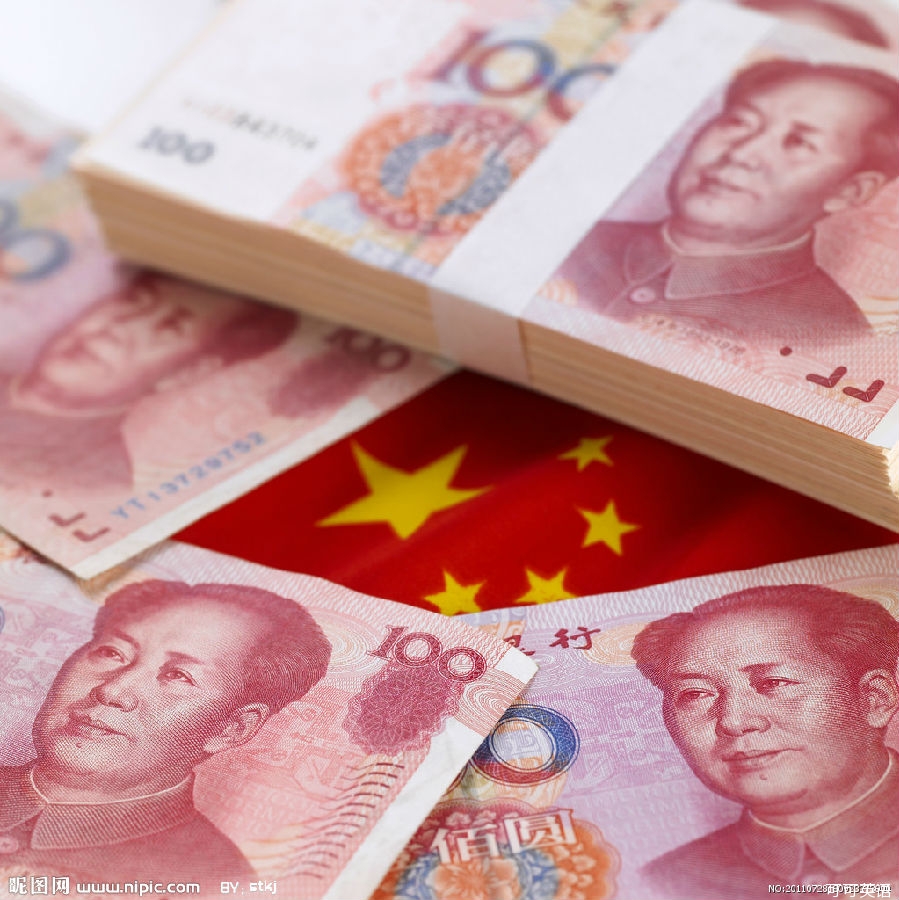(单词翻译:单击)

China's central bank is moving closer to widening the trading range for the tightly controlled yuan, but it still faces obstacles to carry out other reforms that have long been on the agenda.
中国央行正在为进一步扩大人民币交易区间铺路,但在实施金融改革其他措施方面央行仍面临较大阻力。这些措施早已被提上日程。
In the past week, the People's Bank of China has been trying to inject more two-way volatility into yuan trading by guiding the currency lower, an effort Chinese officials and analysts say is aimed at paving the way for widening the yuan's trading band sometime this year. In mainland China, the PBOC sets a benchmark rate against which the yuan can trade; currently the bank allows investors to push its value 1% in either direction from that set rate.
过去一周,中国央行试图通过引导人民币走软来提高人民币的双向波动性。中国官员和分析师们称,央行此举旨在为年内扩大人民币交易区间铺平道路。中国央行每日为人民币汇率设定中间价,允许人民币围绕每日中间价上下1%波动。
Many analysts and economists expect the central bank to expand that range by allowing the currency to move up or down by 2% daily, a move some say could happen as soon as next month, when China's rubber-stamp legislature meets in Beijing. And some see the yuan-band widening as the low-hanging fruit as far as reform efforts are concerned.
许多分析师和经济学家预计中国央行将进一步扩大人民币日交易区间,允许人民币围绕每日中间价上下浮动2%。一些人预计,央行最早可能在下个月采取行动,届时橡皮图章式的中国人大会议将在北京举行。一些市场人士认为,从改革角度来看,扩大人民币交易区间是一个相对容易实现的目标。
'The PBOC has said it would speed up financial reforms, but things like liberalizing interest rates and exchange rates carry a lot of risks,' said Zhang Ming, a senior economist at the Chinese Academy of Social Science, a government think-tank. 'By comparison, it's a lot easier to do something like widening the yuan's trading band because that would still leave the PBOC in control of the currency.'
中国政府智库中国社会科学院(Chinese Academy of Social Science)高级经济学家张明说,央行已表示将加快金融改革,但推进利率和汇率市场化将带来很多风险,相比之下,扩大人民币交易区间这样的举措要容易得多,因为即便扩大交易区间,人民币汇率水平仍将受到央行的控制。
More difficult tasks the central bank faces include giving the market a bigger role in setting the exchange rate and in allocating resources and opening the door wider to foreign capital flows -- or money moving in and out of the country.
中国央行面临的更艰巨的任务包括:让市场在决定汇率水平以及资源配置方面发挥更大的作用,放宽跨境资本流动限制。
PBOC officials, led by Gov. Zhou Xiaochuan, are eager to press ahead on those reforms to help reshape the country's economic model so it's more reliant on domestic consumption and less on exports and investments. But some officials and scholars fear that an aggressive financial reform agenda that leaves untouched other pillars of the economy, such as state-owned enterprises, could backfire.
周小川领导下的中国央行官员迫切希望通过这些改革来完成中国经济的转型,加大内需在经济结构中的比重,不再过分依赖出口和投资。但有官员和学者担心,在不触及国有企业等其他经济支柱的情况下,实施激进的金融改革可能适得其反。
China is awash in credit, with domestic debt rising so rapidly over the past five years that analysts say the economy is beginning to look a lot like Japan, Thailand and Korea did before financial bubbles there burst and produced deep recessions. If interest rates are liberalized too fast, they say, China would risk more credit going to build developments with few occupants -- ' ghost cities,' as they are called, thereby making the country more vulnerable to financial problems.
中国积累了庞大的信贷规模,国内债务在过去五年里迅猛增长,分析人士指出,中国经济已经出现了日本、泰国和韩国在金融泡沫破灭前的景象,而泡沫的破灭无一例外地导致这些国家陷入了衰退泥潭。他们表示,如果利率市场化步伐过快,可能会有更多信贷涌所谓的“鬼城”,让中国更难抵御金融问题。
In addition to yuan-band widening, also high on the PBOC's agenda is setting up a bank-deposit insurance system. The country has never had such insurance, although there has been an implicit guarantee that the government would step in to protect depositors if a bank fails. Introduction of such a system has been stalled for at least 10 years because of opposition from large state-owned banks, officials at those banks say.
除了放宽人民币交易区间,排在中国央行日程表前列的还有建立银行存款保险制度。中国从来没有建立过这种制度,不过政府一直为储户提供隐性担保。大型国有银行的管理人士说,由于大行反对,建立存款保险制度的计划已经搁置了至少10年。
But now, China's leaders have put a premium on increasing lending to smaller, innovative firms -- also a priority of the PBOC's -- and want to increase the number of smaller, privately owned banks to make these higher-risk loans. Deposit insurance could help such banks build credibility with consumers worried about the safety of their money.
但中国政府目前鼓励银行向具有创新能力的中小企业放贷,这也是中国央行的主要任务之一。政府还希望增加中小型民营银行的数量,让这些银行来发放风险更大的贷款。建立存款保险制度有助于民营银行在担心资金安全的储户中树立起信誉。
It's also is widely seen as a first step toward letting banks compete on deposit rates, rather than the current practice in which the government sets it. Higher rates would put more money in Chinese consumers' pockets and give smaller institutions a tool to lure depositors away from larger banks.
建立存款保险制度也被普遍视为放开银行存款利率限制的第一步。允许银行设定更高的存款利率一方面可以充实消费者的钱袋子,另一方面也让中小银行有机会与大银行争夺储户。
'All eyes will be on whether the authorities will walk the walk of reform after the talk,' said Qu Hongbin, co-head of Asian economic research at HSBC Holdings PLC.
汇丰控股(HSBC Holdings PLC)亚洲区经济研究联席主管屈宏斌表示,所有人都将关注中国能否将嘴上说的落实到行动中来。


